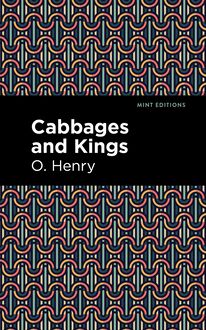-
 Univers
Univers
-
 Ebooks
Ebooks
-
 Livres audio
Livres audio
-
 Presse
Presse
-
 Podcasts
Podcasts
-
 BD
BD
-
 Documents
Documents
-
- Cours
- Révisions
- Ressources pédagogiques
- Sciences de l’éducation
- Manuels scolaires
- Langues
- Travaux de classe
- Annales de BEP
- Etudes supérieures
- Maternelle et primaire
- Fiches de lecture
- Orientation scolaire
- Méthodologie
- Corrigés de devoir
- Annales d’examens et concours
- Annales du bac
- Annales du brevet
- Rapports de stage
La lecture à portée de main
Vous pourrez modifier la taille du texte de cet ouvrage
Découvre YouScribe en t'inscrivant gratuitement
Je m'inscrisDécouvre YouScribe en t'inscrivant gratuitement
Je m'inscrisEn savoir plus
Vous pourrez modifier la taille du texte de cet ouvrage
En savoir plus

Description
The Lady in the Car (1908) is a novel by Anglo-French writer William Le Queux. Published at the height of Le Queux’s career as a leading author of popular thrillers, The Lady in the Car is a story of romance, adventure, and international crime. Using his own research and experience as a journalist and adventurer, Le Queux crafts an accessible, entertaining world for readers in search of a literary escape. Known for his works of fiction and nonfiction on the possibility of Germany invading Britain—a paranoia common in the early twentieth century—William Le Queux also wrote dozens of thrillers and adventure novels for a dedicated public audience. Although critical acclaim eluded him, popular success made him one of England’s bestselling writers. In The Lady in the Car, the narrator reveals his firsthand knowledge of the shadowy figure known across Europe as Prince Albert of Hesse-Holstein—in addition to a number of other elaborate aliases. Renowned for his international connections, debonair attitude, and remarkable generosity, the Prince is a smooth criminal who, with the help of his trusted accomplices, runs a lucrative criminal enterprise in broad daylight. Gifted with a chameleon-like ability to change his appearance, the Prince targets wealthy men and women looking for a way to raise their influence in aristocratic society. Using his state-of-the-art Mercedes as both a symbol of his power and a powerful getaway vehicle, the Prince is more than happy to oblige the fantasies of those with wealth to spare. When an unsuspecting victim turns out to be an extremely powerful woman, the Prince and his gang of thieves find themselves scrambling to not only keep their operation secret, but to keep themselves from going to prison for the rest of their lives. With a beautifully designed cover and professionally typeset manuscript, this edition of William Le Queux’s The Lady in the Car is a classic novel reimagined for modern readers.
Sujets
Informations
| Publié par | Mint Editions |
| Date de parution | 21 mai 2021 |
| Nombre de lectures | 0 |
| EAN13 | 9781513286013 |
| Langue | English |
Informations légales : prix de location à la page 0,0500€. Cette information est donnée uniquement à titre indicatif conformément à la législation en vigueur.
Extrait
The Lady in the Car
William Le Queux
The Lady in the Car was first published in 1908.
This edition published by Mint Editions 2021.
ISBN 9781513280998 | E-ISBN 9781513286013
Published by Mint Editions®
minteditionbooks.com
Publishing Director: Jennifer Newens
Design & Production: Rachel Lopez Metzger
Project Manager: Micaela Clark
Typesetting: Westchester Publishing Services
C ONTENTS P REFACE . A N A POLOGY I. H IS H IGHNESS ’ S L OVE A FFAIR II. T HE P RINCE AND THE P ARSON III. T HE M YSTERIOUS S IXTY IV. T HE M AN WITH THE R ED C IRCLE V. T HE W ICKED M R . W ILKINSON VI. T HE V ENGEANCE OF THE V IPERS VII. T HE S IGN OF THE C AT ’ S -P AW VIII. C ONCERNING A W OMAN ’ S H ONOUR IX. A D OUBLE G AME X. L OVE AND THE O UTLAW XI. T OUCHING THE W IDOW ’ S M ITE XII. C ONCLUSION
P REFACE
An Apology
I hereby tender an apology to the reader for being compelled, in these curious chronicles of an adventurous motorist and his actions towards certain of his female acquaintances, to omit real names, and to substitute assumed ones. With the law of libel looming darkly, the reason is obvious.
Since the days when, as lads, we played cricket together at Cheltenham “the Prince,” always a sportsman and always generous to the poor, has ever been my friend. In the course of my own wandering life of the past dozen years or so, I have come across him in all sorts of unexpected places up and down Europe, and more especially in those countries beyond the Danube which we term the Balkans.
For certain of his actions, and for the ingenuity of his somewhat questionable friends, I make no apology. While the game of “mug-hunting” remains so easy and so profitable, there will be always both hunters and hunted. As my friend’s escapades were related to me, so have I set them down in the following pages, in the belief that my readers may perhaps care to make more intimate acquaintance with the clever, fearless, and altogether remarkable man whose exploits have already, from time to time, been referred to in guarded and mysterious terms by the daily press.
William Le Queux
I
H IS H IGHNESS ’ S L OVE A FFAIR
The Prince broke open a big box of choice “Petroffs,” selected one, lit it slowly, and walked pensively to the window.
He was in a good mood that morning, for he had just got rid of a troublesome visitor.
The big salon was elegantly furnished with long mirrors, gilt chairs covered with sky-blue silk upholstery, a piano, and a pretty writing-table set close to the long window, which led out to a balcony shaded by a red-and-white sun-blind—the salon of the best suite in the Majestic, that huge hotel facing the sea in King’s Road, Brighton.
He was a tall, well-set-up man of about thirty-three; dark-haired, good-looking, easy-going, and refined, who, for the exception of the slightest trace of foreign accent in his speech, might easily have been mistaken for an Englishman. In his well-cut dark brown flannels and brown shoes he went to the balcony, and, leaning over, gazed down upon the sun-lit promenade, full of life and movement below.
His arrival a few days before had caused quite a flutter in the big hotel. He had not noticed it, of course, being too used to it. He travelled a great deal—indeed, he was always travelling nowadays—and had learned to treat the constant endeavours of unknown persons to scrape acquaintance with him with the utter disregard they deserved.
Not often did the Majestic, so freely patronised by the stockbroker and the newly-rich, hold as guest any person equalling the Prince in social distinction, yet at the same time so modest and retiring. The blatant persons overcrowding the hotel that August Sunday, those pompous, red-faced men in summer clothes and white boots, and those over-dressed women in cream silk blouses and golden chatelaines, mostly denizens of Kensington or Regent’s Park, had been surprised when an hour ago he had walked along the hall and gone outside to speak with his chauffeur. He was so very good-looking, such a sportsman, and so very English they whispered. And half of those City men’s wives were instantly dying for an opportunity of speaking with him, so that they could return to their suburban friends and tell of their acquaintance with the cousin of his Imperial Majesty the Kaiser.
But Prince Albert of Hesse-Holstein was thinking of other things. He had no use for that over-fed Sunday crowd, with their slang chatter, their motor-cars and their gossip of “bithneth,” through which he had just passed. He drew half a dozen times at his yellow Russian cigarette, tossed it away, and lit another.
He was thinking of his visitor who had just left, and—well, there remained a nasty taste in his mouth. The man had told him something—something that was not exactly pleasant. Anyhow, he had got rid of him. So Prince Albert Ernst Karl Wilhelm, head of the great house of Hesse-Holstein, grand-cross of the Orders of the Black Eagle, Saint Sava and the Elephant, and Commander of St. Hubert and of the Crown of Italy, returned again to the balcony, smoked on, and watched.
In the meantime, in the big hall below, sat a well-dressed elderly lady with her daughter, a pretty, fair-haired, blue-eyed girl of twenty, a dainty figure in white, who wore a jade bangle upon her left wrist. They were Americans on a tour with “poppa” through Europe. Mr. Robert K. Jesup, of Goldfields, Nevada, had gone to pay a pilgrimage to Stratford-on-Avon, while his wife and daughter were awaiting him in Brighton.
With the inquisitiveness of the American girl Mary Jesup had obtained the “Almanach de Gotha” from the reading-room, and both mother and daughter were, with difficulty, translating into English the following notice of the Prince’s family which they found within the little red-covered book:
“Evangeliques—Souche: Widukind III, comte de Schwalenberg (principaute de Holstein), 1116–1137; bailli a Arolsen et acquisition du chateau de Hesse vers, 1150; Comte du Saint Empire de Hesse, 1349, dignite confirme, 22 juin, 1548; bailli de Wildungen, 1475; acquisition d’Eisenberg (chateau fort, aujourd’hui en ruines, situe sur la montagne du meme nom) vers, 1485; acquisition par heritage du comte de Pyrmont, 1631; coll. du titre de ‘Hoch et Wohlgeboren,’ Vienne, 25 fevr., 1627; pretention a l’heritage du comte de Rappolstein (Ribeaupierre Haute-Alsace) et des seigneuries de Hohenack et de Geroldseck (ibidem) par suite du mariage (2 juill, 1658) du cte Chretien-Louis, ne 29 juill, 1635, + 12 dec. 1706, avec Elisabeth de Rappolstein, nee 7 Mars, 1644, + 6 dec. 1676, apres la mort de son oncle Jean-Jacques dernier comte de Rappolstein, 28 juill, 1673; les lignes ci-dessus descendent de deux fils (freres consaiguins) du susdit Chretien-Louis comte de Hesse-Eisenberg, de Pyrmont et Rappolstein, etc.—V. L’edition de 1832 (Page 84).”
“There, mother!” exclaimed the pretty girl. “Why, they were an ancient family even before America was discovered! Isn’t he real nice? Say! I only wish we knew him.”
“Ah, my dear,” replied the elder woman with a sigh. “Those kind of people never know us. He’s a royalty.”
“But he looks such a nice man. What a lovely car he’s got—real fine! I’ve been out to see it. How I wish he’d take us for a ride.”
“You’d better ask him, my dear,” laughed her mother.
“Guess I shouldn’t be backward. I believe he would in a moment, if I asked him very nicely,” she exclaimed, laughing in chorus. Truth to tell, she had admired him when she had first encountered him two days ago. She had been seated in one of those wicker chairs outside the door in King’s Road, when he had come out and taken the chair next to hers, awaiting his car—a big sixty “Mercedes” painted cream, with the princely arms and crown upon its panels.
He was talking in English to his man, who had carried out his motor-coat. He was a prince—one of the wealthiest of all the German princes, a keen automobilist, a sportsman who had hunted big game in German East Africa, a landlord who owned a principality with half a dozen mediaeval castles and some of the finest estates in the German Empire, and one of the Kaiser’s most intimate relatives. And yet he was travelling with only his man and his motor-car.
Though Mary Jesup was heiress to the two millions sterling which her father had made during the past three years—as half the people in the hotel knew—yet she was aware that even her father’s wealth could not purchase for her the title of Princess of Hesse-Holstein. She was a very charming girl, bright, athletic and go-ahead—a typical American girl of to-day—and as she strolled out along the pier with her mother, her thoughts constantly reverted to the young man in brown who had given her more than one glance when he had passed.
Meanwhile, there had entered to the Prince his faithful valet Charles, a tall, thin, clean-shaven Englishman, some four years his senior.
“Well?” asked his Highness sharply casting himself into an easy-chair, and taking another “Petroff.”
“Got rid of him—eh?”
“Yes—but it was difficult. I gave him a couple of sovereigns, and made an appointment to meet him in the bar of the Cecil, in London, next Thursday at four.”
“Good. That gives us time,” remarked the Prince with a sigh of relief. “And about the girl? What have you found out?”
“She and her mother dined in the table-d’hote room last night, and took coffee afterwards in the Palm Court. The father is the man who owns the gold-mines in Nevada—worth ten million dollars. Last year he gave half a million dollars to charity, and bought the Bourbon pearls for his wife. Gave eighty thousand pounds for them. She’s got them here, a long string twice round her neck and reaches to her waist. She’s wearing them to-day, and everybody, of course, thinks they’re false.”
“How foolish these American women are! Fancy wearing pearls of that price in the open street! Why, she might easily be robbed,” his master remarked.
“But who’d believe they’re genuine? They’r
-
 Univers
Univers
-
 Ebooks
Ebooks
-
 Livres audio
Livres audio
-
 Presse
Presse
-
 Podcasts
Podcasts
-
 BD
BD
-
 Documents
Documents
-
Jeunesse
-
Littérature
-
Ressources professionnelles
-
Santé et bien-être
-
Savoirs
-
Education
-
Loisirs et hobbies
-
Art, musique et cinéma
-
Actualité et débat de société
-
Jeunesse
-
Littérature
-
Ressources professionnelles
-
Santé et bien-être
-
Savoirs
-
Education
-
Loisirs et hobbies
-
Art, musique et cinéma
-
Actualité et débat de société
-
Actualités
-
Lifestyle
-
Presse jeunesse
-
Presse professionnelle
-
Pratique
-
Presse sportive
-
Presse internationale
-
Culture & Médias
-
Action et Aventures
-
Science-fiction et Fantasy
-
Société
-
Jeunesse
-
Littérature
-
Ressources professionnelles
-
Santé et bien-être
-
Savoirs
-
Education
-
Loisirs et hobbies
-
Art, musique et cinéma
-
Actualité et débat de société
- Cours
- Révisions
- Ressources pédagogiques
- Sciences de l’éducation
- Manuels scolaires
- Langues
- Travaux de classe
- Annales de BEP
- Etudes supérieures
- Maternelle et primaire
- Fiches de lecture
- Orientation scolaire
- Méthodologie
- Corrigés de devoir
- Annales d’examens et concours
- Annales du bac
- Annales du brevet
- Rapports de stage




















